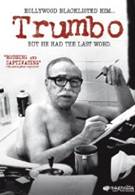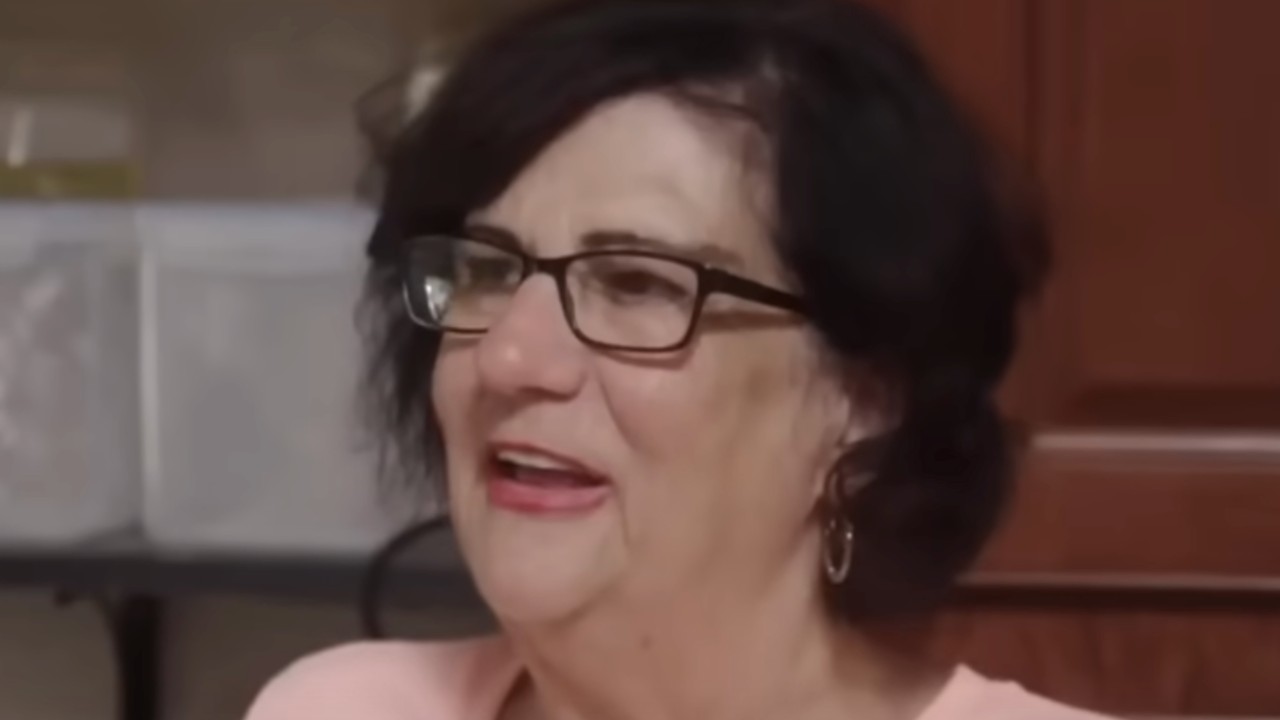To critique something online means any number of people can access it, so the critic should have a fundamental grasp on the English language. I'm fairly confident I could write 10 reviews a day, on any number of subjects, and still not hold a linguistic match to the solar flare that is Dalton Trumbo's written history. Before watching the deeply moving documentary Trumbo, based on son Christopher Trumbo's stage play, I admittedly was only aware of Dalton Trumbo for two reasons. First, he wrote Spartacus; and second, clips from his single directorial effort, Johnny Got His Gun, were infused into Metallica's "One" video. But now I can recognize him as an immensely gifted author and screenwriter, both before and after being blacklisted by Hollywood for having ties to Communism. It's discouraging that someone could be fundamentally vanquished in Hollywood not for a lack of talent, but for superficial beliefs. Maybe I'm understating things, but it's not like the man dyed his skin red and held his fist up all the time, or wrote Alone in the Dark. Take a second to sidestep the onrush of documentaries preaching eco-friendliness and get to know Trumbo. The film, directed by Peter Askin, begins with a title card noting the date of Dalton Trumbo's death, lest you think there's a twist ending. We hear close friend Ring Lardner, Jr. speaking at his funeral, voiced over a striking set of personal photos. Then, a spotlight on actor David Strathairn, back to us, and he begins to orate Trumbo's Laurel Award acceptance speech. And we are at this documentary's core beauty mark, said literally. It is not a surface-level profile of the man's life as a whole. Facts are delivered about his childhood and parents, but the meat of the project is allowing the viewer to witness his mastery of the written word. As a writer in early Hollywood, moreso as an exiled one, there weren't exactly cameras on him all the time, so the footage of Trumbo is limited mostly to home movies/photographs and brief bits of archival footage from the court case and interviews. In fact, Trumbo himself probably has less speaking time than anyone on screen, but you'll never forget his face or the strength of the brain working behind it. It is, in fact, this lack of visual evidence that boosts the film's uniqueness.
Instead of a single, staid narrator of questionable merit, we get to spend time with his children, Chris and Mitzi, former friends/co-workers, as well as a blockbuster cast of some of the more astute actors of the past few generations, Strathairn spoken for. With the exception of an "I'm still kicking" Kirk Douglas, the rest of the thespians are all there to give Trumbo's transcribed words a voice by reading wonderfully playful letters written by Dalton to a number of people he loved and hated, as well as narratives from his works. I would be privy to reading about Trumbo's life in an encyclopedia, because it is a truly interesting, if not necessarily inspiring, story. But the film's examples of his gift, dictated with the same wink and nod as they were written, are by far more interesting than the constant fact-streaming I usually associate with documentary presentation. These quotable passages are delivered by, oh, say, Donald Sutherland, Brian Dennehy, Josh Lucas, and Joan Allen, to name a bunch. Despite the career paths these folks have taken, their voices are nonetheless captivating, and their timing is pinpointed. Particularly poignant is Michael Douglas reading a letter to Sam Zimbalist, shooting down the single-minded nothingness that is the filmmaking factory. He ends these venom-laden words, after a brief pause, with, "Say hello to my friends. And piss on my enemies." It's one of those nerdy, goosebump instances if you're in the moment.
I'm often torn between the deniability of youth and the credibility of getting older, but I am humbly grateful for not having been anywhere near alive when Joe McCarthy had access to lung power. Cripes. The words "Don't ask, don't tell" never crossed his lips, and male-on-male sleepovers probably never occurred to him. I understand that the country was at odds with a violent enemy that could rip the country's fabric apart, and unthinkably defensive actions had to be taken...but even George W. let the segment of the country that is Michael Moore release some pretty naysaying shit without officially begging for his past contributions to society. Again, maybe I'm understating. But Dalton Trumbo, screenwriter of numerous classics, was given the red-carpeted boot, forcing him into jail-time, moving his family to Mexico and back, all the while writing many more produced scripts under assumed names, usually ones of those he could trust within the system. A man busy with drink, with friends, and with hobbies, money did not stick around for very long, and he was forced continuously to work through the back door, or work with his hands instead of his mind. Let it be duly noted, though, that never during this time did his mind wither, or his wit wilt. Nathan Lane delivers Trumbo's lengthy personal reflection on masturbation, in a letter to his son, and it is almost frightening enough to stop me from doing it, at least until the end of the movie. Paul Giamatti kills on a set of letters from Trumbo to his money-hungry phone company, greeting them with "Dear Burglars..." Joan Allen's reading of a letter to a mother, about her just-passed son, dips into sniffle-inducing areas. These things make me believe that if he ever put an ad in the paper to sell a sofa, it would be the only one written in calligraphy, spread across several pages. And I would want to buy that couch, and would kill a man to do it.
I could describe each scene in Trumbo sequentially, but take nothing from the power behind the mini-monologues. And you don't give away a magician's entire set when you relate it to a friend. Oh, Liam Neeson is in it as well. I've listed all the actors now. No surprises for you. But it is the thought that counts, and the gift is immeasureably valuable. To avoid this movie would be to admit you think pop-up books are the apex of language. Sadly, this is a disc as bare as the back pages of most novels. There is a letter from Trumbo to Ring Lardner, Jr., as read by Paul Giamatti, which is great, but it could have been placed into the movie somewhere. Danny Glover's reads a letter from Trumbo to Arthur, a film associate, and it’s as good as anything Danny Glover has done is his career. Again, just a shame it wasn’t included in the film itself.
Other than those two things, there is a flowing photo gallery filled with many photos from the movie, as well as others. It's nice to watch, but really, it's a photo gallery of a man smoking a lot. The proof is in the pudding, and the pudding is in Trumbo, the documentary. Do not forget the name, and you will not be the fool.

Nick is a Cajun Country native and an Assistant Managing Editor with a focus on TV and features. His humble origin story with CinemaBlend began all the way back in the pre-streaming era, circa 2009, as a freelancing DVD reviewer and TV recapper. Nick leapfrogged over to the small screen to cover more and more television news and interviews, eventually taking over the section for the current era and covering topics like Yellowstone, The Walking Dead and horror. Born in Louisiana and currently living in Texas — Who Dat Nation over America’s Team all day, all night — Nick spent several years in the hospitality industry, and also worked as a 911 operator. If you ever happened to hear his music or read his comics/short stories, you have his sympathy.
Joe Hendry Reveals How The WWE Snuck Him Into WrestleMania 41 For Randy Orton Match, And Confirms How Seriously They Take Surprise Appearances
Greg's Mom Seemed Like Another Nightmare 90 Day Fiancê Mother-In-Law, But She Changed My Mind
The Last Of Us Season 2 Episode 3 Live Blog: I'm Talking The Aftermath Of Joel's Tragedy, Ellie's Recovery And More











